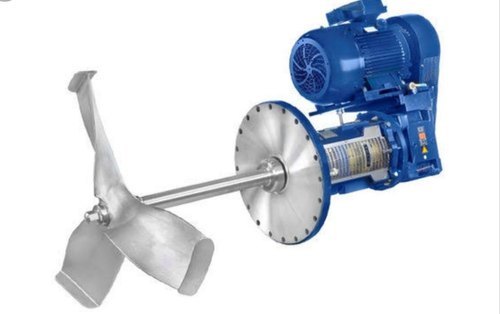In today’s ever-evolving industrial landscape, sustainability has become a paramount concern. As the global community grapples with the environmental impact of industrial processes, manufacturers are actively seeking ways to reduce resource consumption and minimize waste. One often-overlooked aspect of sustainable manufacturing is the role of industrial agitators. These seemingly simple devices play a crucial role in optimizing processes, reducing energy consumption, and promoting sustainable practices in various industries. Industrial agitators, commonly known as mixers, are mechanical devices designed to blend, mix, or stir substances within tanks or vessels. They are widely used across numerous industries, including chemical, pharmaceutical, food and beverage, and wastewater treatment. The critical function of agitators is to ensure uniform distribution of materials, prevent sedimentation, and facilitate heat or mass transfer, among other processes. However, their significance extends beyond these primary functions when viewed through the lens of sustainability.
Efficiency Enhancement – One of the primary ways industrial agitators contribute to sustainable manufacturing is by enhancing process efficiency. Through effective mixing, these devices reduce the time required for chemical reactions, thus leading to shorter production cycles and decreased energy consumption. By optimizing mixing efficiency, manufacturers can not only produce more with less but also reduce waste, making a substantial impact on their overall carbon footprint.

Energy Efficiency – The design and operation of industrial agitators have evolved significantly in recent years, with a strong focus on energy efficiency. Modern agitators are equipped with advanced technologies, such as variable-frequency drives VFDs and computational fluid dynamics CFD simulations, which allow for precise control of mixing speed and power consumption. This level of control ensures that energy is used only when necessary, reducing both operational costs and environmental impact.
Resource Conservation – Another critical aspect of sustainable manufacturing is the conservation of resources. Industrial agitators, when properly configured, minimize material waste by ensuring complete mixing and preventing the formation of clumps or agglomerates. This is particularly important in industries like pharmaceuticals, where precise ingredient ratios are crucial. Reduced wastage not only lowers production costs but also minimizes the use of raw materials, benefiting both the environment and a company’s bottom line.
Water and Energy Savings – Industrial agitadores play a pivotal role in water and energy-intensive processes, such as wastewater treatment and desalination. Their efficient mixing capabilities help ensure that chemicals are evenly distributed, resulting in more effective treatment processes. This, in turn, reduces the need for excessive chemicals and energy, contributing to overall resource conservation.
Cleaning and Maintenance – Maintenance and cleaning of industrial equipment can have a significant environmental impact. Agitators designed with ease of maintenance in mind reduce downtime and the use of cleaning agents, making them more sustainable. Self-cleaning mechanisms and materials that resist corrosion and fouling further enhance the eco-friendliness of these devices.
Innovation and Sustainability – To meet the growing demand for sustainable manufacturing practices, manufacturers are investing in research and innovation. New materials, designs, and technologies are continuously being developed to improve the sustainability of industrial agitators. For example, the use of lightweight materials and advanced coatings reduces the energy required for agitator rotation while increasing their longevity.